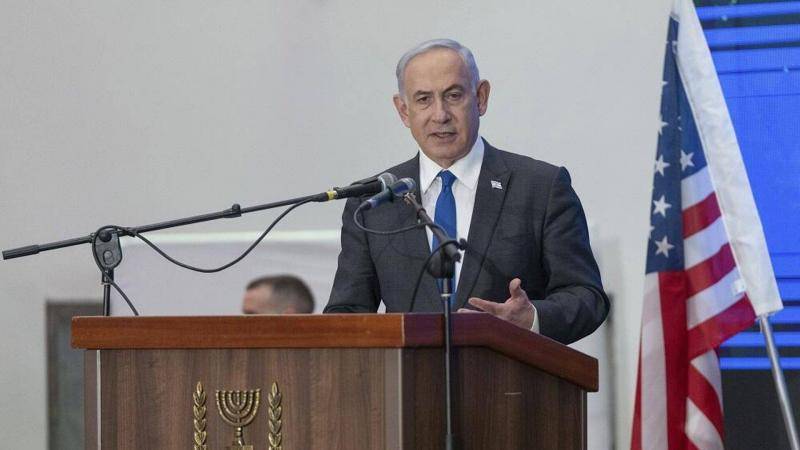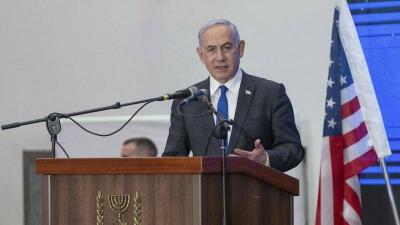The military affairs editor of the newspaper "Haaretz" pointed out that Israeli Prime Minister Benjamin Netanyahu is threatening a military operation in Rafah, but the Israeli army is not prepared to launch it. He noted that Netanyahu's repeated threats of a military operation in Rafah serve two purposes; alongside the opportunity to reach a prisoner swap deal, the Prime Minister is buying himself time.
The military affairs editor added, "The fighting in the Gaza Strip has been ongoing in recent days as part of preparations. The main battle is taking place in the middle of the strip in the Hamad City, a Qatar neighborhood in the northwest of Khan Younis, which the Israeli army entered about two weeks ago. At the same time, limited airstrikes are being carried out in northern Gaza."
He pointed out that "in these operations, hundreds of Hamas members and militants have been killed, and the fighting, even if in small military frameworks, is taking place alongside an Israeli defensive effort focused on the West Bank and the front line in anticipation of any escalation during the month of Ramadan."
He continued: "This week has already witnessed a significant increase in attempts to carry out operations, alongside rising tensions surrounding arrangements for Muslims to enter the Al-Aqsa Mosque for prayer." The American news site "Politico" reported yesterday that "the Biden administration will consider supporting an Israeli operation in the Rafah area if Israel limits itself to a targeted operation and refrains from occupying the entire city." These leaks came after President Biden's public statements, in which he warned Israel against taking an uncoordinated step in Rafah and urged it to ensure the protection of over a million Palestinian citizens gathered there.
It is not certain that there is even a "King's Road" that allows for actual damage to Hamas's capabilities in Rafah without its occupation, according to "Haaretz's" military analyst. He said, "In any case, contrary to official Israeli statements, it seems that the Israeli army is not yet capable of conducting an immediate operation in Rafah. It will take several weeks to evacuate the residents, and the Israeli army must allocate significant forces for this mission. These are expected to come from regular units that are not currently deployed in the south and from reserve forces who have mostly returned to their homes."
According to "Haaretz," the main military achievement in recent times remains in doubt, such as the assassination of Marwan Issa, the third-ranking official in Hamas in the Gaza Strip, who was apparently killed in an airstrike on the Nusseirat refugee camp early in the week. As of now, Israeli intelligence does not have confirmed information about Issa's death, so matters are being taken cautiously.
The newspaper’s military analyst clarified that "the main change that occurred this week relates to the humanitarian aid that has significantly expanded under U.S. pressure. Under U.S. directives, Israel allowed the dropping of aid from the air, and now also via the sea route, which is set to be established next month with the creation of an American naval dock on the northern coast of Gaza."
Negotiations regarding the prisoner swap deal have not made significant progress this week, but they have also not reached a complete deadlock. The Americans missed the target date they set, which was the beginning of Ramadan on March 11, and they blame this on obstinacy, according to the newspaper.
The military analyst for "Haaretz" did not rule out that the justified increase in the flow of aid shipments to Gaza might serve Hamas because it reduces the pressure on the Gaza residents to reach an agreement that halts the fighting. However, the United States still has two conditions for exerting pressure on Hamas through intermediaries in Qatar and Egypt. Qatar hosts Hamas leadership abroad and pumps money into the strip, while Egypt controls the rear entrance to the strip via the Rafah crossing and possibly also through tunnels dug underneath the border. The intensive use of these pressure points could potentially reduce Hamas's opposition to the deal to make progress during Ramadan.
He added: "Netanyahu's repeated threat of a ground operation in Rafah serves two purposes; regarding the progress of the prisoner exchange deal, it reveals whether Egypt, the U.S., and the Palestinians are concerned about the Israeli army's invasion of Rafah, perhaps allowing some room for flexibility to reach an agreement. At the same time, Netanyahu is buying time by endlessly engaging with the potential invasion of Rafah, which provides space for discussion about the end of the war and delays the public and political discussion regarding the investigation into the oversights that led to the October 7th attack."




